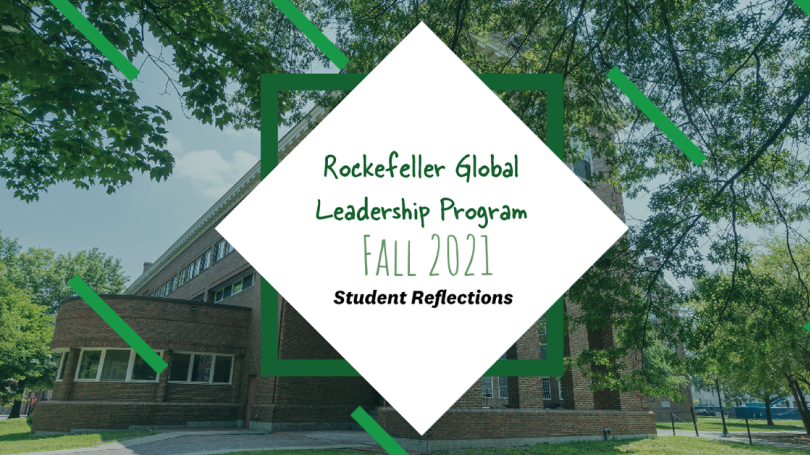
- Public Policy
- Leadership
- Funding
- News & Events
- About the Center
Back to Top Nav
Back to Top Nav
Back to Top Nav
Back to Top Nav
A lot of things are perceived as "common sense:" treat your waiter nicely, do not text and drive, clean up after yourself, and many others. However, common sense is not so common. Cultural respect, like the previous actions, are not prevalent among Dartmouth students.
Our Dartmouth bubble includes people who do not realize their microaggressions and those who engage in downright racism. So, you ask: how can we provide people with the tools for dialogue across differences? Truthfully, nothing can force someone to engage in genuine and organic eye-opening discussions. The precursor for any effective exchange is willingness and open-mindedness. Participants in the Rockefeller Global Leadership Program (RGLP), myself included, chose to participate in the program seeking to broaden our horizons and get to know people different from ourselves. For a series of reasons, other people have not chosen to participate in the program.
The lack of care for cultural awareness and appreciation that exists here extends beyond the "bubble." Especially in our political climate, people fail to ask questions due to fear of cancel culture. This automatically limits the number of interactions people engage in. To build a platform for dialogue there must be a trust and common agreements to have an open mind, not judge, and assume that people have the best intention. Sometimes people do not have the best intentions, but to educate someone about human experiences, we cannot approach flammable situations with a blowtorch.
The Greek philosopher Epictetus said, "We have two ears and one mouth, so we can listen twice as much as we speak." When building trust, individuals must feel heard. Listening activities are easy to recreate. Devise pairs, have Person A speak for a set time limit about something (perhaps an overview of their life in 3 minutes or so) while Person B listens, then switch. After listening to one another, participants should pose any questions they have and discuss what they heard.
Trust and respect are earned; and, in a world where people do not appreciate human differences, there is little respect between "us" and "them." We look for the "other" and avoid it as though its existence posed a threat. Sometimes people don't want to engage in vulnerable conversations, so trust and respect must be built through culture training programs or workshops. We assume that people "just know" when we should assume that others know nothing about anything besides themselves and their life experience. As people, all we can do is ask or be placed in a situation where questions about culture are inevitable.